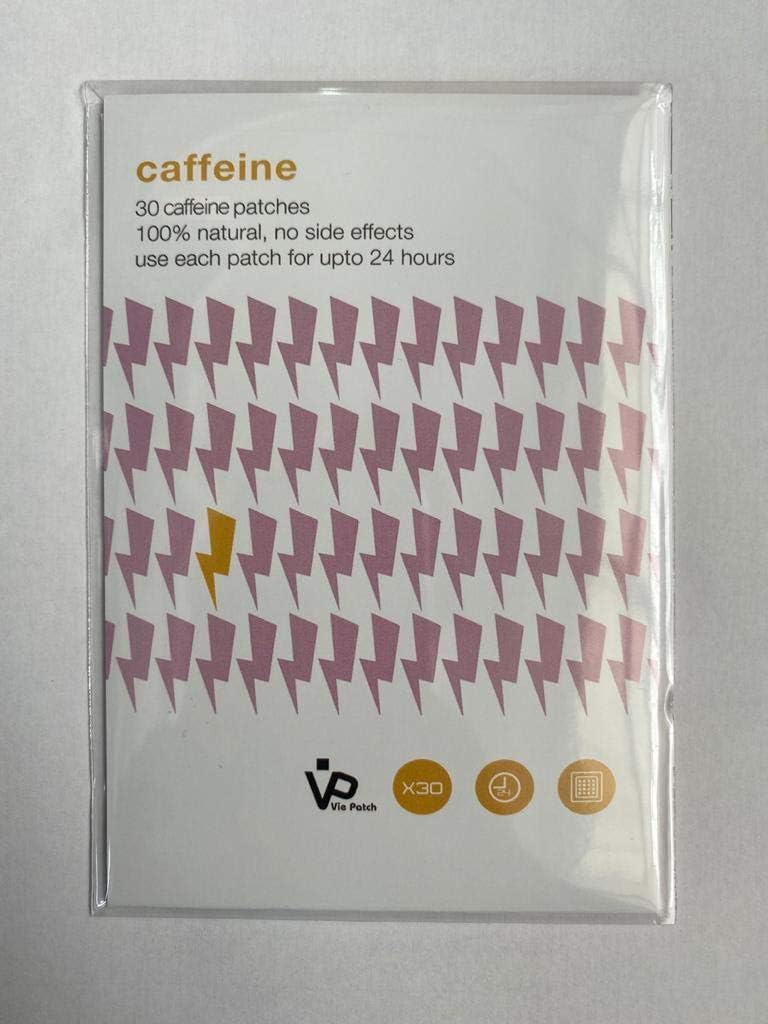
VIE Caffeine Patches, 30 Patches, 30 Days Supply
FREE Shipping
VIE Caffeine Patches, 30 Patches, 30 Days Supply
- Brand: Unbranded

Description
Those who over-consume caffeine at toxic levels can display features of caffeine intoxication (also referred to “caffeinism”). But moderation is the key word here. Just think of the French novelist Honoré de Balzac, who called coffee 'a great power in my life' and was supposed to have imbibed 50 cups a day. Or the singer Robbie Williams, who at one point claimed to be drinking 20 cans of Red Bull and 36 double espressos daily. This kind of consumption is hardly conducive to health and well-being. A study published in Diabetes Care in 2004 linked a high coffee consumption over a period of 4 weeks with increased fasting insulin concentrations.
We can add the second value to the cache, which leads to the removal of the first value: cache.get("B");
How much caffeine is safe?
https://www.uab.edu/news/focus-on-patient-care/item/262-caffeine-intake-linked-to-urinary-incontinence Negative cognitive and emotional effects can also be a consequence of caffeine withdrawal. Caffeine stimulates the release of hormones adrenaline, cortisol, and epinephrine. Caffeine also increases the levels of neurotransmitters dopamine and norepinephrine.
Caffeine’s main effect on the body is an increased temporary sense of wakefulness and alertness, but it can also cause uncomfortable symptoms. Much of the data collected on caffeine is observational in nature. There have been few randomized, controlled studies. It’s linked with numerous health benefits, which are mainly attributed to its antioxidant content and other active substances. People who suddenly stop drinking coffee may experience symptoms about 12 to 24 hours after quitting. These peak after 20 to 48 hours before disappearing. Gradually reducing caffeine intake over a period of days does not trigger these symptoms. Decaf usually contains similar amounts of antioxidants as regular coffee, although they may be up to 15% lower ( 8, 9, 10, 11).Even one cup of coffee daily can cause withdrawal symptoms. Keep in mind that a cup is 8 ounces, and many mugs and to-go cups hold up to 16 ounces or more.
However, it’s worth mentioning again that the research on regular coffee is way more extensive than what’s available for decaf. Summary: For some people, giving up caffeine is probably a good idea. However, the general advice is not to give up caffeine immediately, but rather to take a phased approach. Knowing your caffeine intake is particularly important in childhood and adolescence. There's a reason energy drinks are set to be banned for children in England: younger brains are more sensitive to caffeine. As a rule of thumb, children should consume no more than 3 mg of caffeine a day for every kilo of their body weight. (For a child weighing 40 kg, this would equate to 120 mg - about the same as one strong coffee.) This reduces oxidative damage and may help prevent diseases like heart disease, cancer, and type 2 diabetes ( 13, 14, 15, 16).Varma, S. D., Hegde, K. R., & Kovtun, S. (2008, October). UV-B-induced damage to the lens in vitro: prevention by caffeine. Journal of Ocular Pharmacology and Therapeutics,24(5), 439-44 For example, one review of 40 studies concluded that drinking two to four cups of coffee daily was associated with a lower risk of death, regardless of factors like age, weight status, and alcohol consumption ( 27). Some of the beneficial effects of regular coffee are directly attributed to the caffeine, so decaf should not have these effects.
Caffeine is a first line treatment for neonatal apnea due to its metabolites' ( theophyllines) effects on the lungs and breathing rate. Oral administration of medication in neonates is difficult for several reasons. Poor swallowing and GI compromise often lead to unpredictable and erratic dosing. This makes transdermal delivery of medications an ideal and promising choice. Studies have shown that caffeine applied twice daily in gel formulation in neonates is sufficient to maintain therapeutic levels of caffeine while avoiding oral dosing complications. [13] [14] Cosmetic use [ edit ] Cellulite [ edit ] Research from Johns Hopkins University suggests that a dose of caffeine after a learning session may help boost long-term memory. Liver and colon Nehlig A. Effects of coffee/caffeine on brain health and disease: what should I tell my patients? Pract Neurol. 2016;16(2):89-95. doi: 10.1136/practneurol-2015-001162 academic.oup.com https://academic.oup.com/jsh/article-abstract/35/2/269/965314?redirectedFrom=fulltext&login=false . Retrieved 2023-04-19. {{ cite web}}: Missing or empty |title= ( help) People who lowered their daily consumption by more than one cup of coffee showed a 17 percent higher risk for type 2 diabetes.
Caffeine addiction
Eskelinen M & Kivipelto M. (2010). Caffeine as a protective factor in dementia and Alzheimer’s disease. There are many ways to remove caffeine from coffee beans. Most of them include water, organic solvents, or carbon dioxide ( 1). There’s a lot of individual variability when it comes to tolerance for caffeine. For some people, one cup of coffee can be excessive, while others may feel fine with more. After you stop using caffeine, blood flow to the brain increases. Headaches are from the brain adjusting to the increase in blood flow. Once the brain has adapted, the withdrawal headaches will stop. Duration and severity of the withdrawal headaches vary. Tiredness
- Fruugo ID: 258392218-563234582
- EAN: 764486781913
-
Sold by: Fruugo
